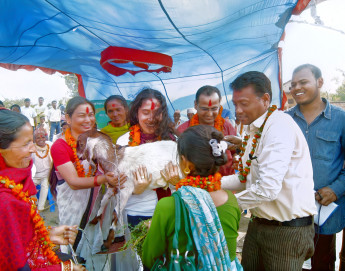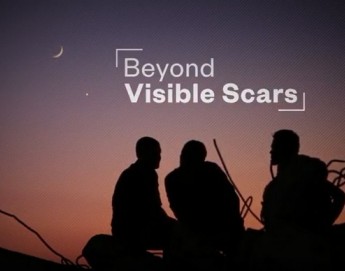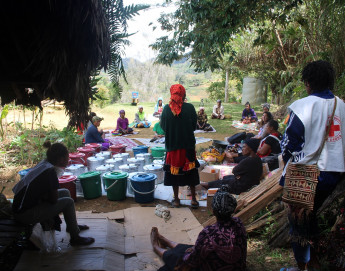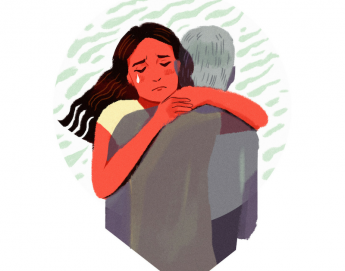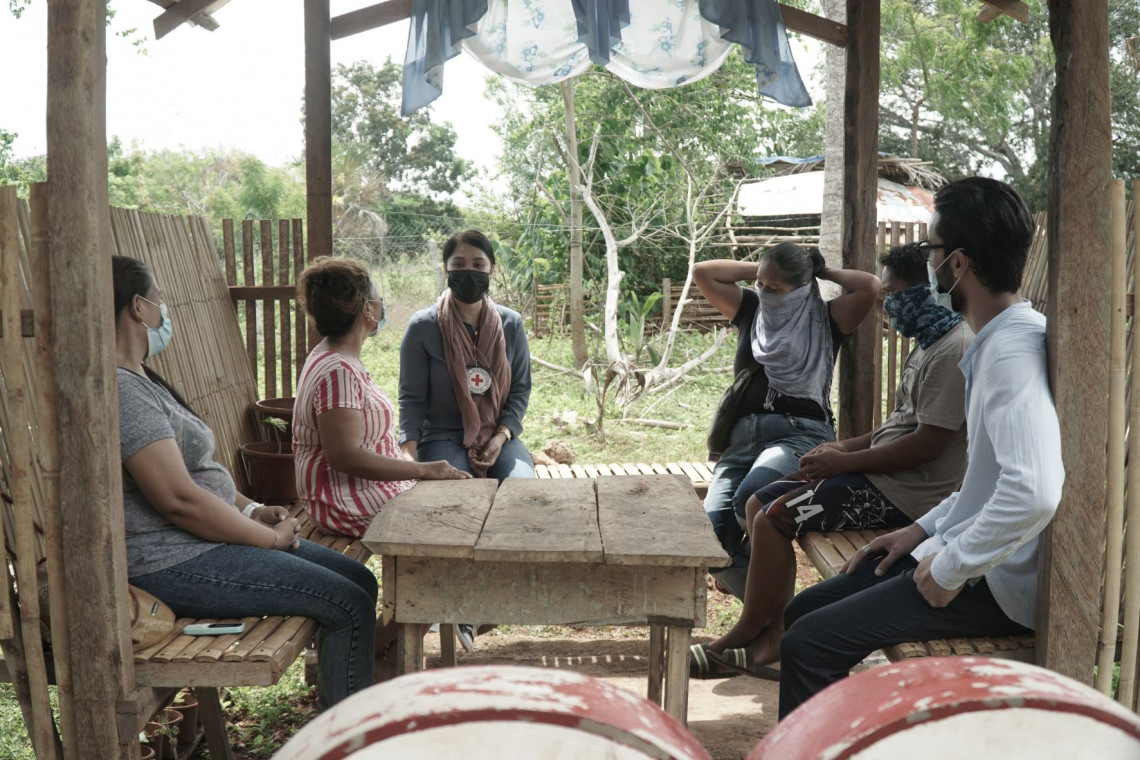
World Mental Health Day: "Resilience is inbuilt, just needs right environment to flourish"
What made you choose mental health care as your career path?
I fell in love with my profession when I started working with high school children as a guidance counsellor. The turning point came when one of the students, who was facing a tough time at home, wanted to quit school. I wanted to help her so we started doing some sessions. The student is now flourishing, and we are still in touch. I knew then that I wanted to work in this field.
Did you always want to work in the humanitarian space?
I became acquainted with humanitarian work while in college and participated in a lot of activities that focused on raising awareness of human trafficking and sexual violence. I always envisioned myself working in the humanitarian field so I guess I can say it was my dream to be here.

Novee conducts a session during a workshop on MHPSS in Mindanao. ICRC
What makes this job challenging?
Hearing a victim of sexual violence narrate the ordeal they have gone through can sometimes shake one's own values and emotions. There have been instances where my colleague, who is an MHPSS delegate, sat down with me and explained the difference between being sympathetic and being empathetic, the latter is what we need to exercise and develop a lot more in our work in the ICRC. He has trained me to be more accepting and to move on, instead of getting dragged down by my emotions.
How do you manage the stress that can come with your job in mental health care?
My first tough experience with the ICRC was when I had just joined. I came from a non-MHPSS background, so it was definitely a bit of a transition. Within a week or so of joining, I was asked to support victims of the conflict in Marawi, the Philippines. After the sessions, I found myself crying alone in the hotel.
My supervisor told me something that has helped me adapt and cope better. He said I should understand that this is going to be tough work sometimes, but that healing takes time too. He told me I needed to accept that I was not here to "fix" these people, but to support them and walk with them through their healing process. I'm not a hero here; I'm just walking with them.
There is no shame in taking care of your mental health.
— ICRC Asia-Pacific (@ICRC_AsiaPac) October 8, 2021
It’s okay to seek help, especially if you live in conflict-affected areas.#WorldMentalHealthDay pic.twitter.com/9mKi7aEBYM
What makes this job gratifying?
As an MHPSS field officer, I can really feel the change I make in people's lives through my sessions with them. People who have been isolated till then begin to socialize, get proper sleep and eat balanced meals – these things might seem so normal to us, but they're milestones for some of the people I work with.
The other thing I would like to mention is that when heads of government structures come to us and ask for support to set up mental health structures and programmes, it really shows us that our work has a positive impact. It feels great when they approach us because they see the value in what we do.
What is "resilience" and how does the ICRC help develop it in the people we work with?
I believe each person is born with resilience that helps them bounce back and recover. But it's like a muscle that takes time to build, develop and grow to help survive traumatic experiences. It needs an appropriate environment to develop – health, food, safety and water. The ICRC has plenty of assistance programmes to create this environment for those who need it the most.
What are three things you'd associate with someone who works with the ICRC?
Passion, love and hope.
From the Asia-Pacific
The ICRC has the following MHPSS programmes in the Asia-Pacific region. All the programmes build the capacity of local humanitarian organizations to contribute towards sustainability.

Know more about MHPSS
The ICRC's MHPSS projects respond to the needs of people affected by armed conflict and other violence, including those affected by emergencies, victims of violence, families of missing people and front-line workers, among others. Individuals across these groups experience various mental health and psychosocial consequences of violence such as trauma-related symptoms because of injuries or exposure to violence, or psychological distress such as depression and anxiety.


